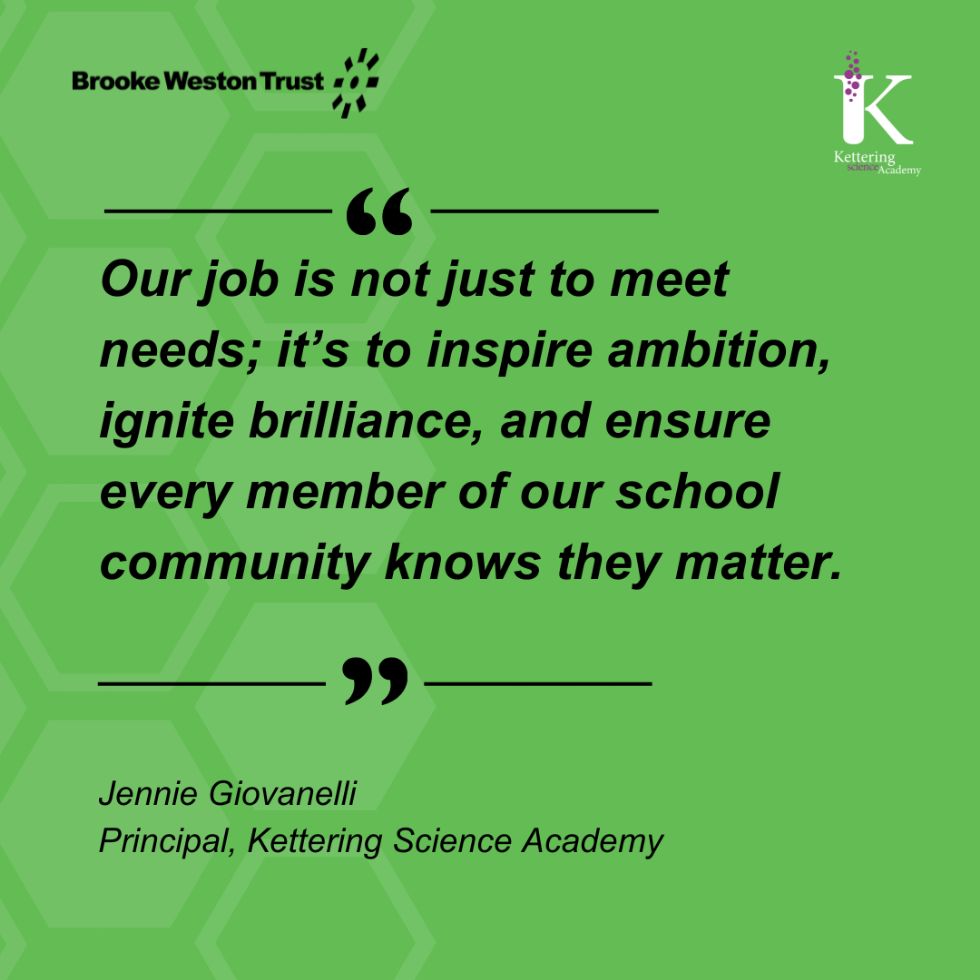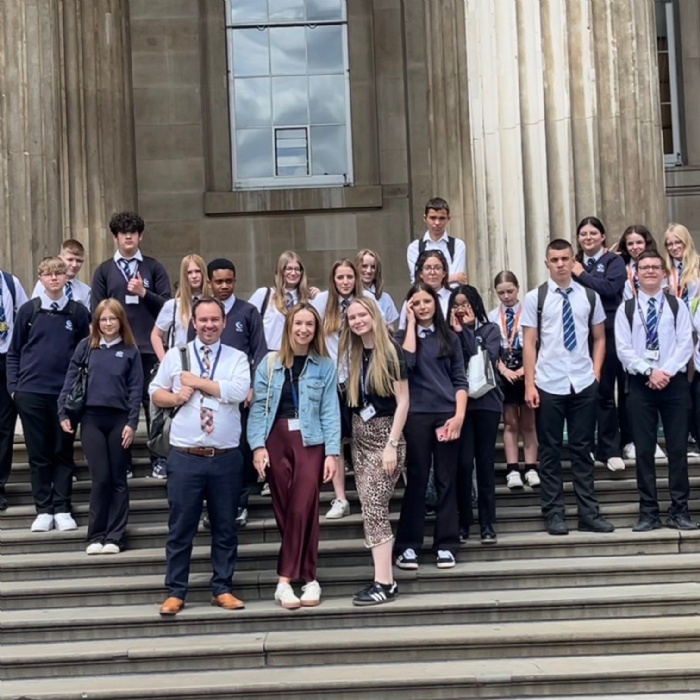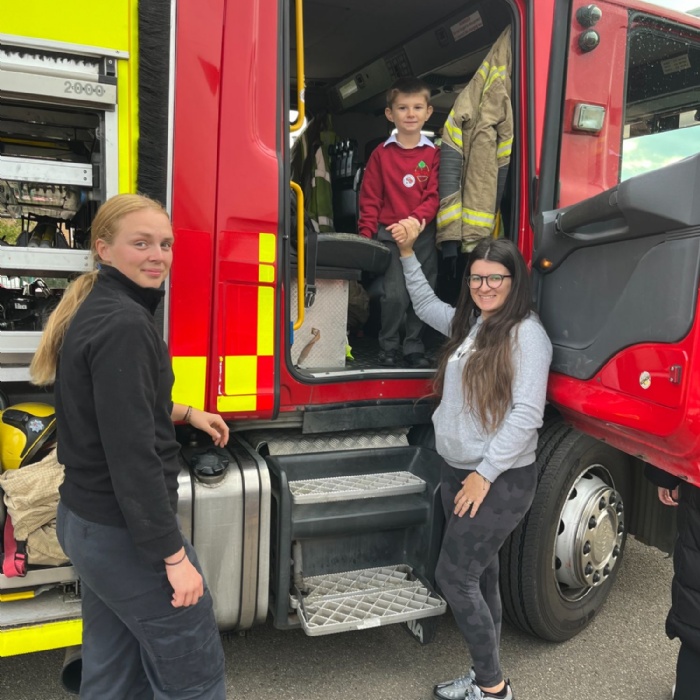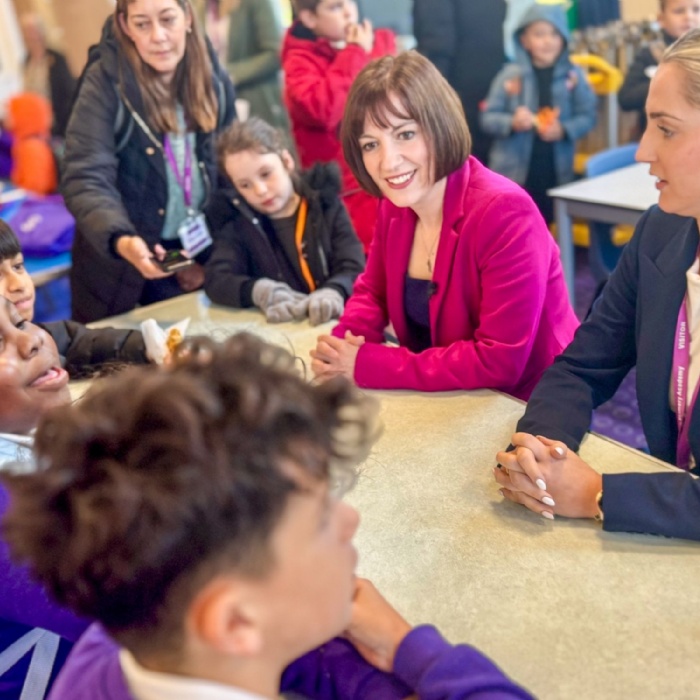Kettering Science Academy’s Journey Toward Truly Inclusive Education

At Kettering Science Academy (KSA), part of Brooke Weston Trust, inclusion is not a standalone initiative; it is embedded in the school’s culture and daily practice.
The guiding principle is simple: every member of the school community should feel seen, valued, and supported to achieve their best, and to have their brilliance ignited, regardless of background or starting point.
A Broader Understanding of Inclusion
Daniel Dudson, Inclusion Lead and Senior Leader, has seen the school’s approach evolve significantly in recent years. “Inclusion used to be seen mainly in terms of support for students with special needs or behaviour challenges,” he explains. “Now it’s a whole-school responsibility, built on strong relationships and a willingness to adapt every aspect of school life so that everyone can succeed.”
This approach reflects Brooke Weston Trust’s wider commitment to inclusive practice across all its schools. At this year’s Northamptonshire Schools’ Inclusion Conference, hosted at Brooke Weston Academy, Daniel led a workshop for school leaders on inclusive leadership. Participants agreed that inclusion is not about having all the answers but about being open, curious, and ready to listen - especially to voices that are often overlooked. The group emphasised the need to embed inclusion into every decision, lesson, and policy, rather than treating it as an add-on.
Turning Values into Action
KSA’s inclusion principles are visible in everyday practice. Staff use a wide range of information, including attendance, behaviour, and pastoral data, to identify students who may need additional support at the earliest stage. This proactive approach allows for timely intervention before challenges escalate.
Senior Leaders have undertaken Non-Violent Resistance training, equipping them with strategies to de-escalate challenging situations with calm and care. These approaches will be shared with all staff to build consistency, reduce exclusions, and strengthen a culture of trust and safety.
Focusing on Strengths
A key element of KSA’s inclusion strategy is the recognition and celebration of each student’s strengths. “We focus on what motivates and excites them - whether it’s art, sport, music, or something else - and use those interests to reconnect them with learning and the wider school community,” Daniel notes.
Following a suspension, reintegration meetings are designed to look forward. Conversations centre on students’ talents, their relationships, and their aspirations, with parents contributing actively. This asset-based approach shifts the focus from problems to possibilities.
Inclusion as a Shared Responsibility
The academy recognises that inclusive education cannot sit with one role or one department alone. While SENCOs and pastoral teams play a crucial part, inclusion is reflected in teaching, curriculum design, leadership, and school policies. Open discussions about where systems may create barriers are encouraged, and early collaboration with parents helps to create long-term solutions.
For schools at the beginning of their inclusion journey, Daniel’s advice is to be curious, to seek out underrepresented voices, to ask difficult questions, and to build the trust necessary for change.
Supporting EAL Learners in the Classroom
Inclusion is also demonstrated in the school’s approach to supporting students who speak English as an Additional Language (EAL). Dumiso, KSA’s EAL specialist, works with students and staff to ensure language becomes a strength rather than a barrier. His role extends beyond vocabulary and grammar, focusing on helping students understand academic language and subject content so they can participate fully in lessons.
Recognising that each EAL learner is unique, Dumiso tailors his teaching to suit individual strengths and backgrounds. Lessons are planned to be both challenging and accessible, with the right support built in.
Making Learning Accessible and Ambitious
Many EAL students are learning new content and a new language simultaneously. To make this manageable, Dumiso incorporates visuals, step-by-step modelling, dual-language glossaries, and “think aloud” strategies into his teaching. For example, a Year 10 student from Somalia made rapid progress through targeted support involving sentence starters, peer buddies, and reflection tools. These strategies enable access to complex material without lowering expectations.
Dumiso’s guidance for colleagues is clear: plan for challenge with the right support, use materials that reflect a range of cultures, and create opportunities for students to express what they know. Above all, he stresses the importance of building trust so that students feel confident to take risks in their learning.
Leadership Perspective
Principal Jennie Giovanelli describes inclusion as a defining feature of life at KSA. Under her leadership, the academy has strengthened early identification of barriers, prioritised student strengths, and embedded a culture where collaboration with families is integral to success.
As she reflects on the school’s progress, she says:
“Inclusion at KSA is not an initiative or a project - it’s the way we do things here. It shapes every decision we make, from the classroom to leadership discussions. We are proud of the progress so far, but we are honest about the fact that there is always more to learn and more to do. Inclusion is everyone’s responsibility. Leaders, teachers, support staff, students, and families all have a role to play in removing barriers and making sure every young person feels they belong and can succeed. Our job is not just to meet needs; it’s to inspire ambition, ignite brilliance, and ensure every member of our school community knows they matter.”






.jpg)

